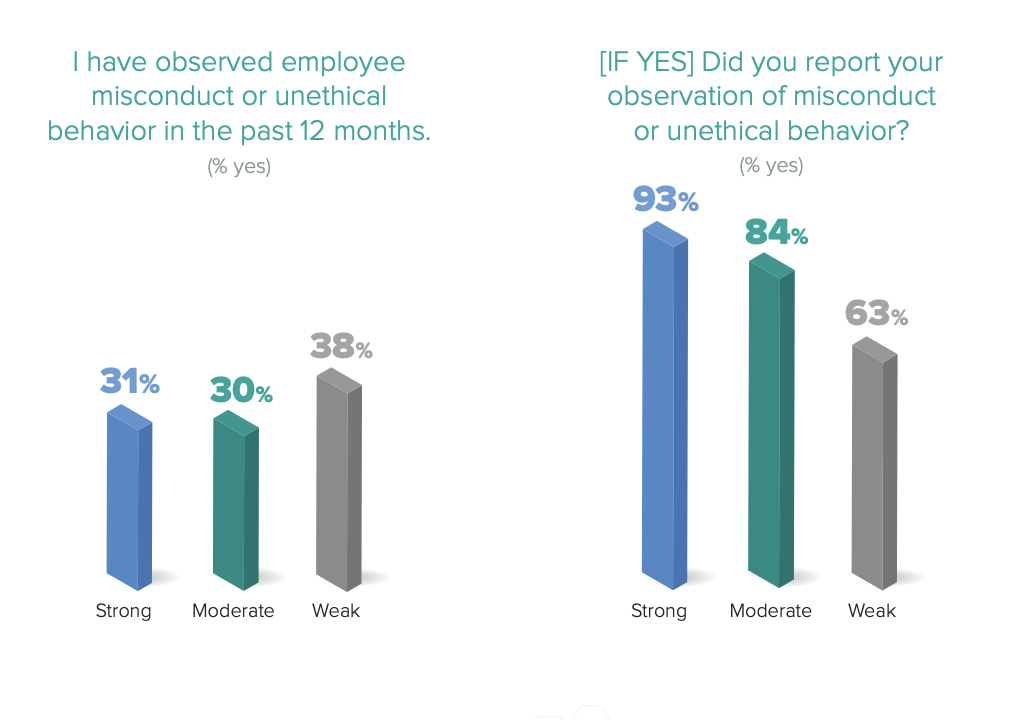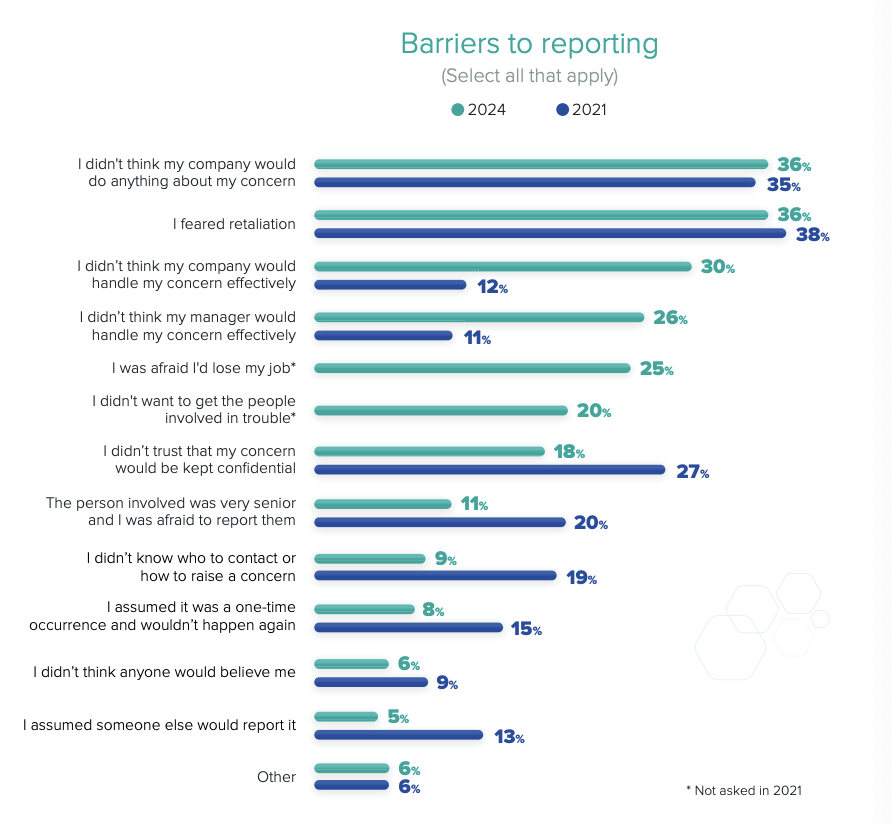
One in four workers say it's 'OK to break the rules if needed to get the job done': report

A third of employees across the world have observed employee misconduct or unethical behaviour in the past year, with such practices more prevalent in organisations with weak workplace cultures.
This is according to LRN's latest Benchmark of Ethical Culture Report, which surveyed 8,500 employees at major organisations and corporations from 15 different countries.
It found that 33% of employees observed misconduct or unethical behaviour in the past year, with instances going up to 38% for organisations with weak workplace cultures.
According to the report, 79% of those who saw misconduct or unethical behaviour reported them, with a majority raising it with their managers (60%).
Reporting of such instances, however, were much more prevalent in organisations with "strong" workplace cultures (93%), than those with a weak one (63%).

Source: LRN
While most employees reported misconduct or unethical behaviour, 21% of them didn't.
According to the report, the top barrier to reporting was the belief that their organisation wouldn't do anything about their concern (36%). They also feared retaliation (36%).
"The top barriers overwhelmingly signal a lack of trust in the system of procedural justice: participants didn't think their company would do anything about their concern or handle it effectively, nor do they think it would be protected from retaliation," the report read.

Source: LRN
There is also a portion of employees who have high tolerance for misconduct, according to the report. In fact, 23% agreed that it's "OK to break the rules if needed to get the job done," while 14% admitted that they also "engaged in behaviour that violated their company's Code of Conduct or standards" in the past year.
According to LRN's report, the powerful drivers of "principled performance" at work include: